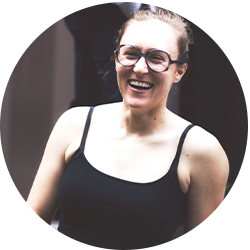Interviewing

Whether you're applying for summer work, graduate school, a new job, or even a promotion, you will need to be prepared for the interview process. Interviewing is an art and the key to success is preparation.
Whether it's making sure your LinkedIn profile is updated, researching and reviewing the company's vision, or mentally and physically practicing, start early and seek out tools and resources that will help you to review your strengths and areas that may need improvement.
Resources for Practice & Preparation
Three Easy Ways You Can Begin to Prepare
1. Research the position and organization
- Contact HR for a more detailed job description, talk to people working in the field, and most importantly, talk to someone who already works at the organization
- Review the company’s website, annual report, and social media presence, because a commonly asked question is, “What do you know about our organization?”
2. Review your relevant qualifications
- Understand the value of what you have to offer the organization, not simply what the organization can offer you
- Know your resume well - tied to each of your experiences are a number of skills, traits and/or accomplishments that qualify you for the role
3. Generate a bank of personal stories
- Be prepared to talk about your experiences and provide concrete examples
- Create a bank of personal stories. See example here.
Types of Interviews
Making a Good Impression
From the minute you arrive at the interview location, you are making an impression with each person you meet. What are
- 7% is what we say
- 38% is how we say things
- 55% is our body language
Before the interview begins
Show up on time; there is no excuse for being late. Greet each person you meet with a smile. Initiate and participate in casual conversations. Turn off all mobile devices. If you are feeling stressed or nervous, there are a number of strategies you can use to help yourself remain calm - see our strategies for managing stress and nervousness .
During the interview
Introduce yourself with confidence. Greet the interviewer with a firm handshake and make eye contact. Build rapport. If possible, try to observe the interviewers' communication style and mirror it. Slow down. Even though you may be nervous, remember to speak clearly and at an even pace. Use pauses as a strategy to avoid um’s and ah’s. Notice your nonverbal cues. Try to avoid playing with your hair or jewelry, crossing your arms, slouching in the chair, or leaning over a table. Be yourself and smile!
After the interview
Send a thank-you note within 24 hours. Ask for feedback. Write down the questions you were asked. Reflect on and learn for your next interview. Stay positive. See our example thank you note.
Additional Interview Preparation Resources
LinkedIn Learning
Check out videos from industry professionals on developing effective interview skills.
Interview Workshop on OWL Brightspace
Learn tips and strategies, and practice your skills in a group setting.
Career Appointments
Book a one-on-one appointment with a Career Coach to discuss interview strategies or other interview concerns.
What Our Students Are Saying About Our Services
North de Pencier
"This week I found out that I matched to psychiatry residency at the University of Toronto. I am so excited! Thank you so much for practice interviewing me and for the CV session that you ran. I couldn't have done it without you and the small army of people who supported me!"
John Lee
"I cannot thank you enough for your kind words and encouragement. It really helped me gain confidence in myself and I was able to calm my nerves during the actual interview. Although we only talked for that hour or so, your time undoubtedly had a major role in me obtaining my dream."



